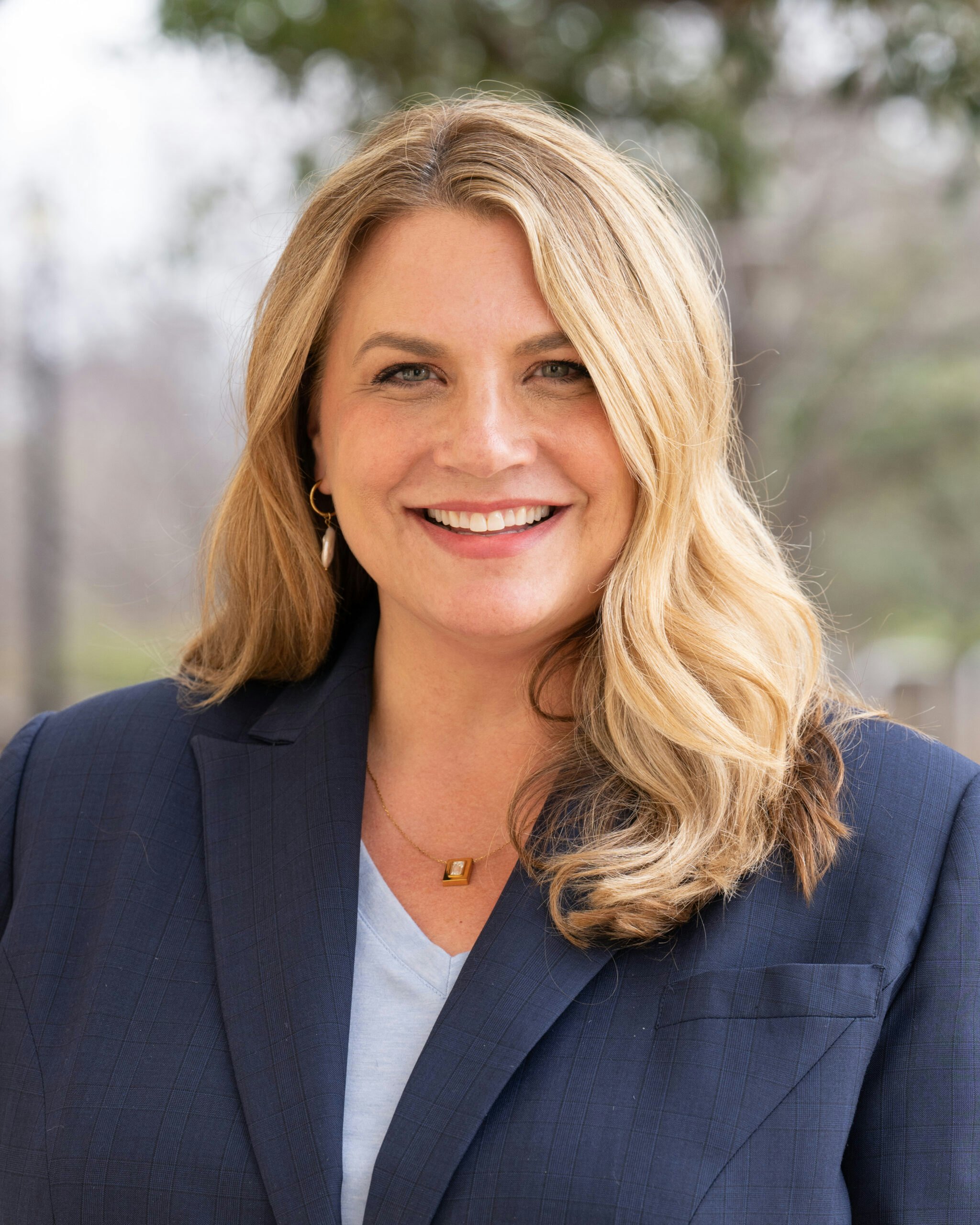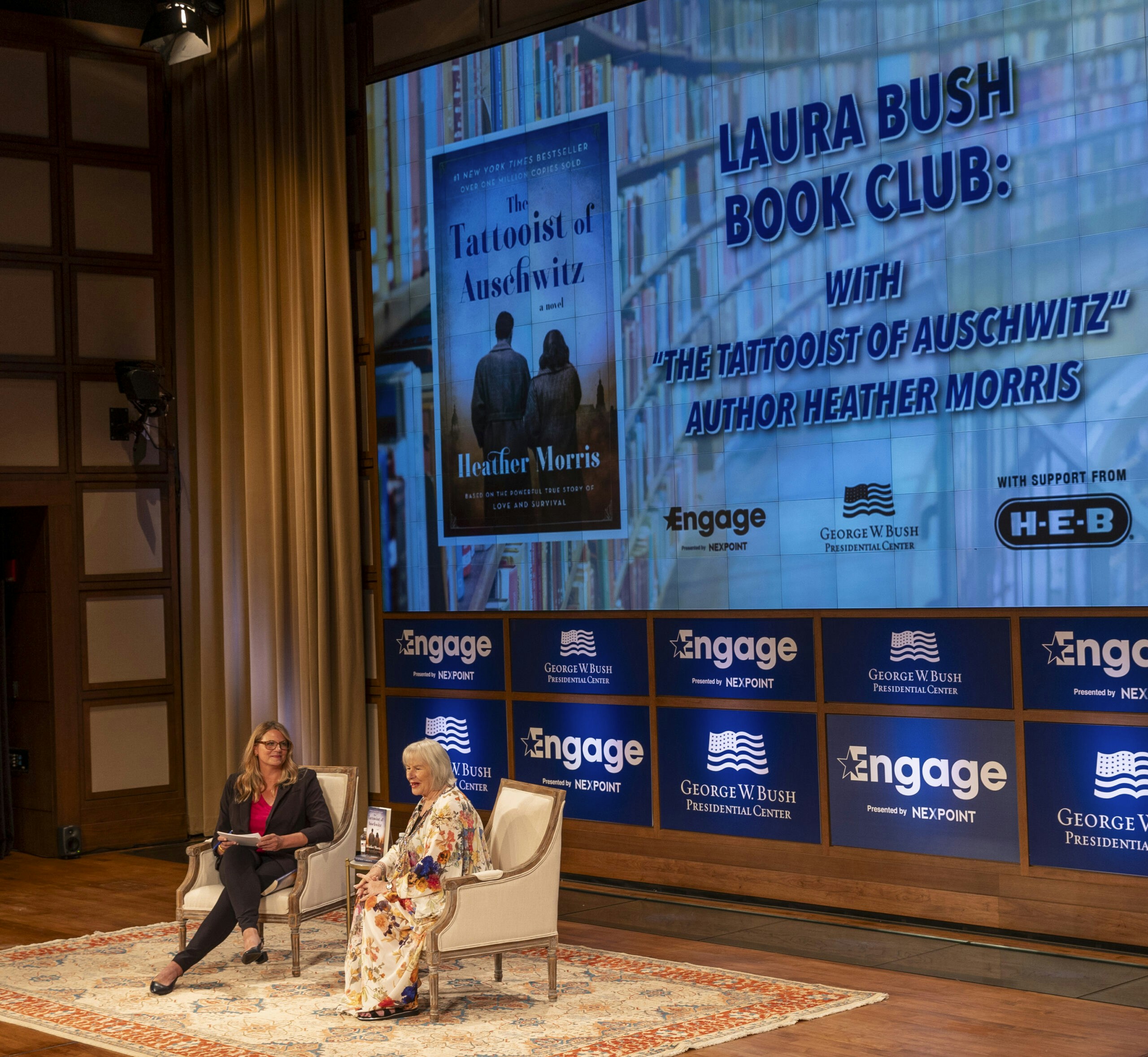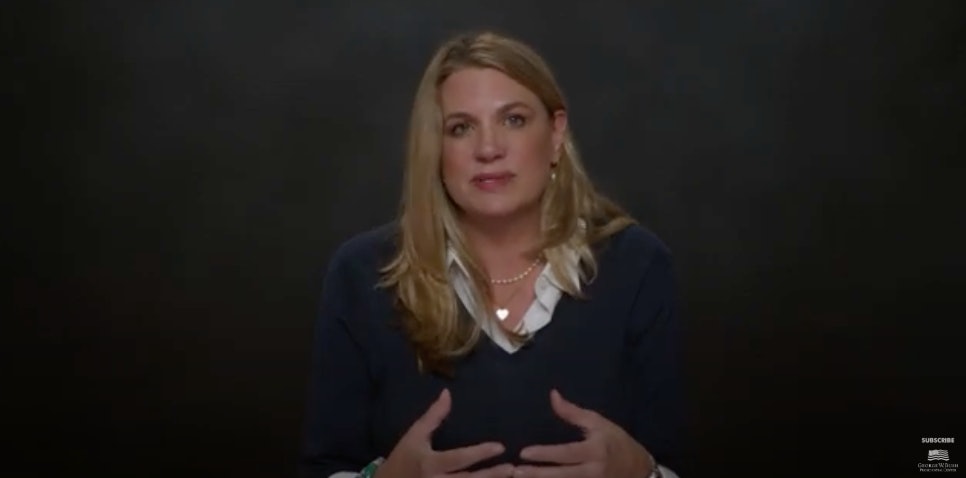Never forget. That’s the call to action that Heather Morris, the author of The Tattooist of Auschwitz, shared earlier this week with the sold-out audience at the Laura Bush Book Club, a special edition of Engage at the Bush Center, presented by NexPoint and supported by H-E-B.
Morris’ internationally bestselling novel is based on the heart-wrenching story of Lale Sokolov and Gita Furman, two young Jewish people who meet and improbably fall in love at Auschwitz, the largest and deadliest Nazi concentration camp. They keep each other alive by their wits and by luck, determined to survive. After the war, they manage to find each other again, get married, and raise a son.
Lale didn’t speak about their experience at Auschwitz – nor his role as a camp tattooist, forced to ink numbers on the arms of his fellow prisoners – until late in his life, when he met Morris. Their friendship and conversations begat the book, which has sold more than 12 million copies and now has a new life as a Peacock series, released this month.
The Book Club conversation delved into the story’s difficult elements – like the impossible choices Lale, Gita, and others made to stay alive, the horrifying inaction of bystanders, and the astonishing forgiveness that Lale was able to carry forward into life after the war. Many in the audience were in tears at times.
Our democracy requires that we never forget stories like these, that we never take our fragile freedoms for granted, and that we respect America’s influence in the world. We need our young people to know these stories, too, so that they develop the empathetic and intellectual muscles they need to grapple with history, even at its most horrific. For with an understanding of both events and context comes the ability to resist repeating humanity’s darkest hours. But too many of our students lack the reading and comprehension skills needed to do that well – or at all.
A recent article in the Chronicle of Higher Education titled “Is This the End of Reading?” flags concerns that many faculty have about the readiness and abilities of college students to engage deeply in content. They lack the stamina to read significant works and synthesize multiple sources of information. Faculty rachet down expectations and layer up supports in response, but students still struggle to think critically about what they read and consume. The author notes several possible causes, including that students need more than a short video or book excerpt to learn complex topics.
But she also flags the pervasive use of a flawed reading and writing instructional approach for K-12 students that has left them unprepared for college level work, an area of focus at the George W. Bush Institute. Many of our nation’s K-12 students are struggling mightily, particularly in reading. This is fixable, particularly when governors and state leaders are willing to step forward with a vision and the fortitude to back it up. There’s a right way to prepare students to read and think, and we can’t shy away from saying that clearly. Understanding takes more than a short video or book excerpt.
Morris’s books help ensure that the humanity of major historical moments doesn’t fade away as time passes. And, perhaps most importantly, her storytelling makes it impossible to forget how easily evil can seep into daily life, especially when good people stand aside. But we leave our students wildly ill equipped for citizenship in our democracy if they can’t easily read these stories and if they can’t apply their inherently challenging lessons to today’s world.
































